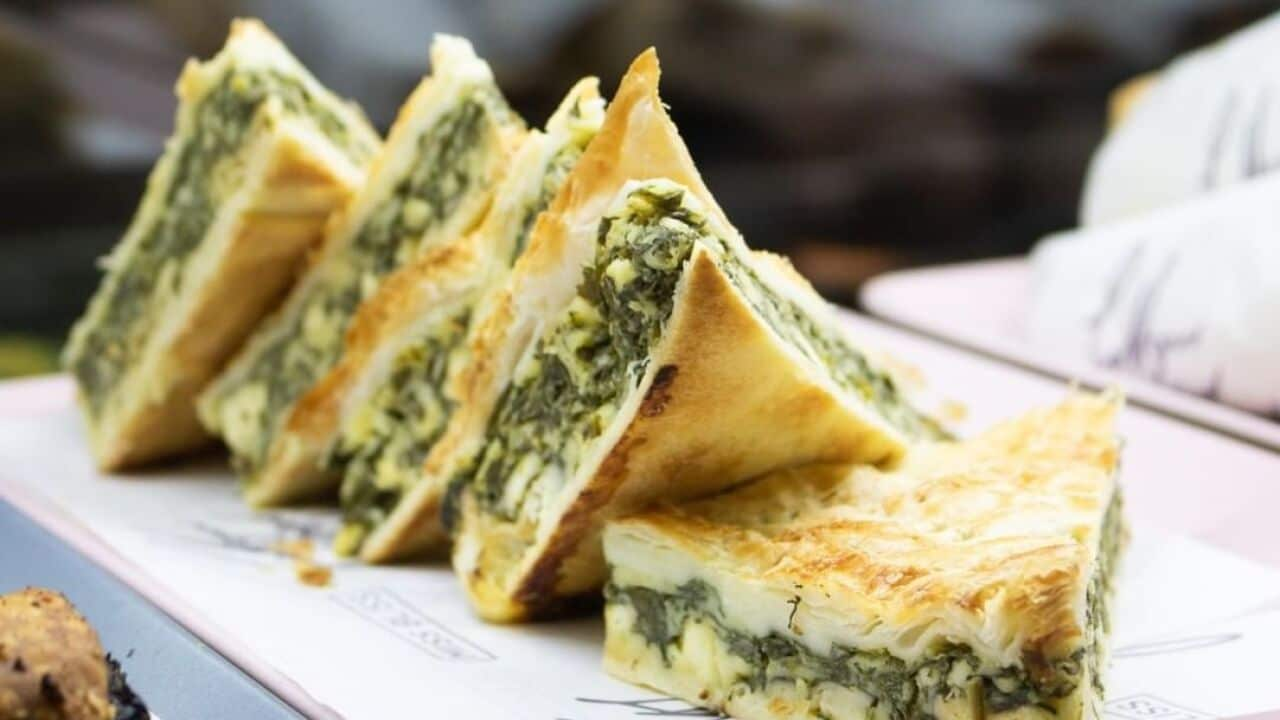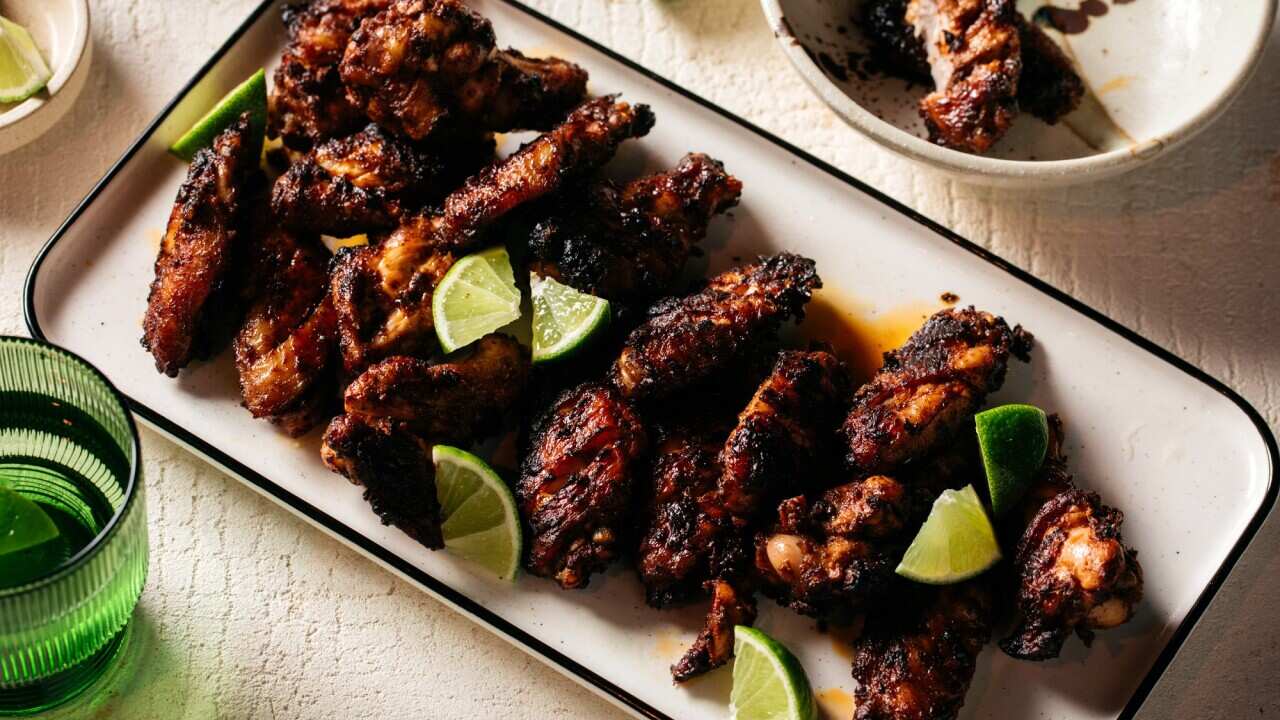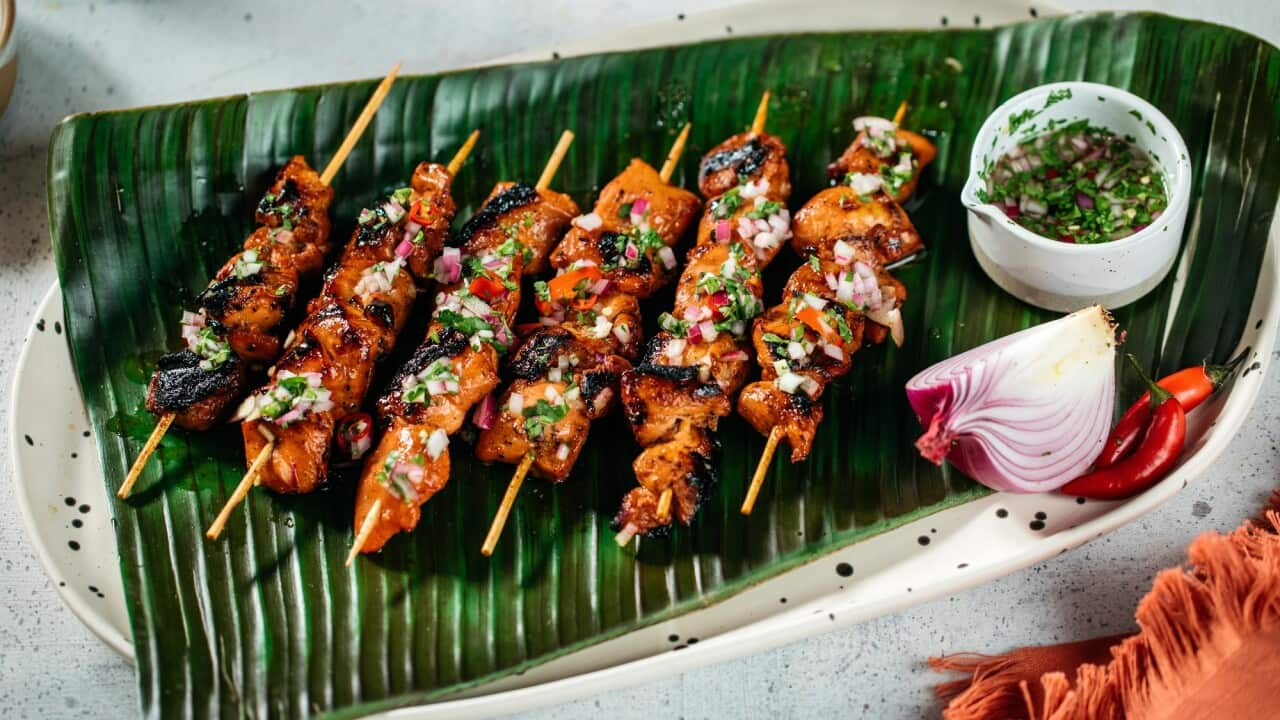first discovered he wanted to spend his life cooking wholesome ingredients at age 12. Having been raised on a tropical fruit farm on Queensland’s Sunshine Coast, the chef with Polish lineage spent years developing a strong connection to fresh produce from the land.
Throughout adulthood and the course of his career, he carried with him an innate understanding of the power that fresh food could have on people with physical and mental health issues.
But it wasn’t until 2011 that Golinski was forced to call upon his love of delicious ingredients to help him recover from the heartbreaking tragedy of losing his wife and three daughters in a house fire.
I now meet a lot of people now in the burns community who have lost whole hands or can’t see and I think I am so lucky to have maintained the ability to continue to do what I love to do – cook.
Golinski also suffered catastrophic burns to more than 40 per cent of his body and was kept in an induced coma for more than eight weeks.
“I probably spent four months crying, feeling anxious and asking myself why,” Golinski says. “But in the end, there's no explanation for it. The only thing you can do is just accept that sometimes life can give you a very tough hand and there's absolutely nothing you can do to change it.”
Golinski tells SBS Food that exercise, family and cooking helped him through the most difficult years of his life.
“I now meet a lot of people in the burns community who have lost whole hands or can’t see. I just think I am so lucky to have survived and maintained the ability to continue to do what I love to do – cook...When I was cooking, I was healing.”
The chef explains that it was the process of connecting with beautiful ingredients that helped him battle grief and fight through the fog to become mentally healthy again.
“The beauty in ingredients and food played a big part in my recovery. A lot of my thought processes back then were ‘life sucks and the world is really bad’.
“But then, when you are working with something so beautiful such as fresh, wholesome ingredients that are natural, you say ‘the world is not such a bad place’. I started looking at the good parts of life and not so much the bad parts."
If you hold up the prosciutto, you can see through it. It’s like a crystal chandelier. When you crack open a perfectly ripe fig, you can also see the pink crystals on the inside, glistening.
Examining a thinly sliced piece of prosciutto and some figs, Golinksi says the magical structures of these two simple ingredients makes him feel mindful and content.
“If you hold up the prosciutto, you can see through it. It’s like a crystal chandelier. When you crack open a perfectly ripe fig, you can also see the pink crystals on the inside, glistening.”
It's this sort of appreciation for the existence of good ingredients and food preparation techniques that demonstrates how simple produce helped Golinksi to recover from tragedy.
Mindful cooking and mental health
The chef now hopes that people living with mental illness will consider cooking with wholesome ingredients as a form of therapy and an exercise in mindfulness.
“People living with mental illness may not go out and buy carrots and celery and tomatoes and cook for themselves [when they are not feeling great]. Often, the task at hand may seem too scary and daunting.
“But if we bring cooking back to being a fun thing to do rather than a burden, we can show people living with a mental illness just how magical food can be.”
Golinski advises that people “buy the best possible ingredients you can afford so you need to do the least with them” to eliminate stress and maximise the natural flavours that make fresh ingredients taste so healing.
“Even if you practice making one simple dish, and do it again and again until you are happy with the way you do it, it will help.”
Cooking as a form of stress relief
According to the , one in five Australians aged 16-85 experience a mental illness in any year.
The most common mental illnesses are depressive, anxiety and substance use disorder.
Although mental illness can affect anyone at any time, regardless of culture or background, the estimates that a quarter of a million first-generation adult Australians from culturally and linguistically diverse (CALD) backgrounds experience some form of mental disorder in a 12-month period.
Dr Tetyana Rocks, a postdoctoral research fellow at , recommends that people from CALD backgrounds who have an ingrained love of food could use cooking as a stress relief therapy.
“Cooking is traditionally viewed as something that is nourishing and caring,” says Dr Rocks who was born in Ukraine.
“You have to take time out to cook for yourself or family. There’s that by taking time off to reduce stress and follow a mindfulness exercise, like cooking or even making tea, you can nourish your body and de-stress.”
So even if you are going through a hard time, perhaps you can find a relief in cooking? Anything you can do to take care of yourself will be beneficial for your mental health.
“It also follows that people who cook for themselves and cook at home usually have a better diet quality than people who do less cooking or eating at home.
“So even if you are going through a hard time, perhaps you can find relief in cooking? Anything you can do to take care of yourself will be beneficial for your mental health.”















